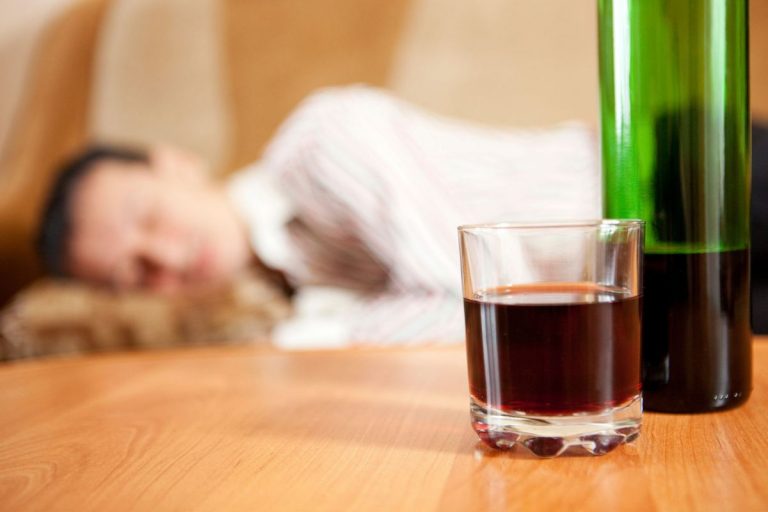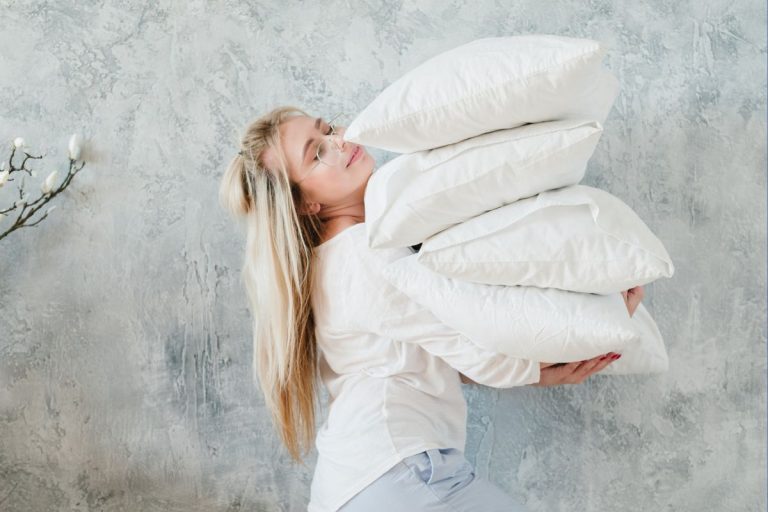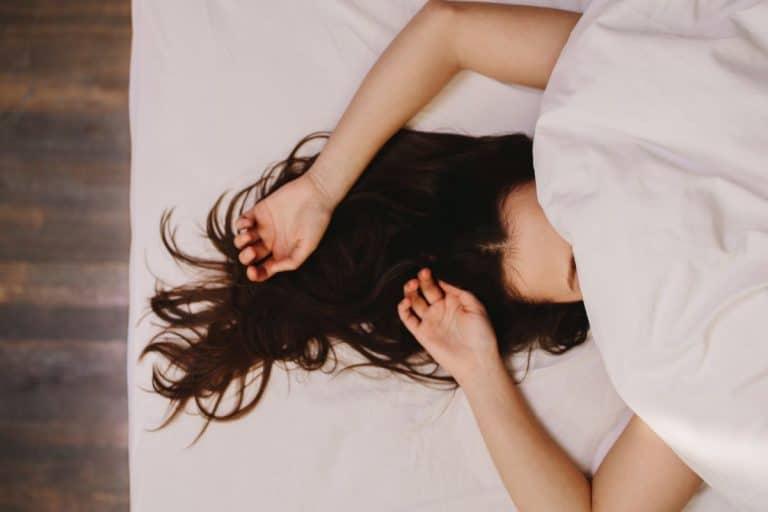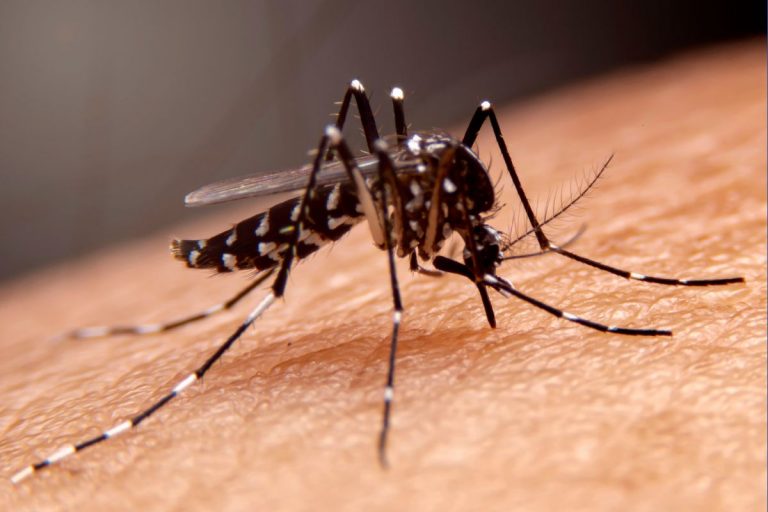We’ve all experienced it; waking up with a wet pillow is something that happens to some people regularly or occasionally. Regardless of the frequency, drooling is a normal occurrence.
Excess saliva on the pillow can mean that you’ve had an incredibly good sleep or that you sleep with an open mouth, for example.
However, excessive drooling can also be a direct indication that there may be some serious health issues going on. That is why, in the following paragraphs, we’re going to observe the reasons people drool excessively, what drooling may indicate and how you can stop it.
What Is Drooling?

Terry Cralle, RN
According to the general definition, drooling is the occurrence of salivary incontinence or the involuntary spillage of saliva on the pillow during sleep.
Often, drooling occurs without any specific reasons or causes. It can be characterized as a completely normal occurrence, as nearly every person has experiences drooling.
However, excessive drooling can be a sign of serious health issues. It can also create mental and psychological complications in certain individuals.
Drooling in excess can be very uncomfortable, especially if a person produces excess saliva that creates breathing problems, bad odor, gagging or coughing.
What Are The Main Causes Of Drooling (Not Aways Serious Disease)?
The causes of drooling can be numerous. Occasional drooling is common during sleep, but causes of excessive and frequent drooling can really be many. Here are some of the main causes of frequent drooling;
Sleeping position
the position you sleep in can actually be a direct cause of drooling. For example, if you sleep on your stomach, or your side, you are more prone to drooling than people who sleep on their back.
The reason for this is very logical; in these sleeping positions, your mouth is facing downwards. Normally, the law of gravity will help the saliva leave your mouth, and end up on your pillow.
When you sleep on the stomach, you can drool pretty excessively. When you sleep on the side, saliva will leave the side of your mouth, but may not be excessive.
GERD (gastrointestinal reflux disorder)
GERD, also known as chronic acid reflux is one of the most common causes of excessive drooling. People with GERD experience serious heartburn, which causes the acid from the stomach to move back up into the esophagus.
This may cause the body to create more saliva, while the person experiences difficulties in swallowing and general pain in the chest and throat area. This is a very unpleasant occurrence that many people have to deal with.
Sleep apnea
Obstructive sleep apnea can be a direct cause of dry mouth and drooling. It causes you to sleep with your mouth open, resulting in drooling.
Sleep apnea is actually a sleeping problem where a person stops breathing several times during the night, snores excessively and keeps waking up gasping for breath. This is a serious issue, where drooling is only one, minor symptom.
Nasal congestion
people with congestion of the nose and nasal passage, which usually occur during a cold, allergies or infections of the respiratory system, are more likely to experience drooling.
Because you’re not able to breathe through the nose, you will sleep with an open mouth and use that passage for breathing. This will result in excess saliva production and in drooling during sleep.
Medication
Studies from NIH have shown that certain medications cause drooling, either because they cause excess saliva production or the impairment of one’s swallowing ability.
Usually, medications that belong to the antipsychotics group cause drooling (like Clozapine), but also medications used for the treatment of Alzheimer’s or dementia.
Difficulty swallowing or Dysphagia
dysphagia is a nervous system disorder that can cause the inability to swallow.
This occurs in people who suffer disorders like ALS (amyotrophic lateral sclerosis), Bell’s palsy and Parkinson’s disease.
The inability to swallow can also be caused by a stroke or other conditions where a person has difficulties eating, drinking, and generally managing their saliva.
Is Drooling Dangerous?
Drooling, in general, isn’t dangerous, but when it happens frequently and excessively, it can cause some health complications. Drooling can result in the following health problems;
- Dehydration and dry mouth
- Irritated and chapped lips and skin around the mouth
- Formation of sores in the corners of the mouth (can be painful and bleeding)
- A sore throat caused by the dryness of the mouth
- Throat infection caused by excess saliva in the throat
- Lung infection caused by excess saliva in the throat
- Degradation of the skin in the mouth (and around the mouth) caused by frequent exposure to moisture
- A foul odor and bad breath caused by excess saliva and dry mouth
- Embarrassment and low self-esteem in chronic drooling cases
- Pneumonia in cases where excess saliva is constantly being inhaled from the back of the throat
How To Stop Drooling: 6 Method That Works
Fortunately, there are many ways in which you can treat and eventually stop drooling from occurring. Here are some of the best treatments you can try;
1. Sleeping on the back (The easiest method)
As mentioned before, sleeping on the stomach and the side can cause excessive drooling. Therefore, try changing your sleeping position and start sleeping on your back.
Sleeping on the back might not be the most comfortable position, but it is the best way to prevent saliva from exiting your mouth. If sleeping on the back is not an option for you, try using pillows that can elevate your head and mouth, like the so-called wedge pillows.
2. Wearing a Mandibular device
A mandibular device is an oral appliance, used to help your jaw rest during sleep. The device is used to prevent hypersalivation, snoring and bruxism (teeth grinding, clenching, and gnashing during sleep).
Try consulting your dentist or a medical professional about this device. It can usually be purchased at a pharmacy, but sometimes it must be prescribed by a dentist or a doctor.
3. Treating nasal and throat infections and allergies
If you want to stop drooling, but you’re experiencing frequent colds, allergic attacks, and seasonal throat and nasal infections, then you really need to take care of these problems.
Try treating allergies with over-the-counter medication, as well as sore throat and nasal infections. These are easily treated and require regular use of throat spray or moisturizers, nasal ointment as well as frequent nasal decongestion.
4. CPAP machines
if sleep apnea is the cause of your drooling problem, try using the CPAP (continuous positive airway pressure) machines intended to treat this sleeping problem.
The CPAP machines increase air pressure in the throat so that the airway stays open when you breathe. This way, you will be able to sleep easily during the night, and the excess drooling should stop as well.
5. Botox injections
Never though drooling could lead you to Botox, but here you are. Botox injections are not only used to tighten the skin and remove wrinkles. It can also be used to tighten the salivary glands, which are responsible for salivation. Botox helps paralyze the salivary glands, preventing excess drooling.
6. Anti-salivation medication
There are anti-salivation medications available for adults who experience excessive drooling during sleep.
The most commonly prescribed medications for this cause are Hyoscine and Scopolamine.
However, medications like Amitriptyline (blocks salivary glands), Robinul (reduces secretion from salivary glands) and AtroPen (reduces drooling and saliva production) are also used to treat excess drooling.
Is Drooling A Sign Of A Serious Disease?
Surely enough, excessive drooling can be a sign of a serious health problem. Here are some of the most common cases where drooling is recognized as the first onset and symptom of a disease;
Parkinson’s disease
studies have shown that drooling can be one of the first symptoms of Parkinson’s. A study has shown that around 56% of all patients with Parkinson’s disease have experienced excessive drooling in the early stage of the disease.
Parkinson’s disease affects muscles and weakens their function, which affects the jaw and the mouth area at the beginning of the disease development.
Multiple Sclerosis
Excessive drooling and frequent swallowing problems can be a sign of MS or multiple sclerosis. Excessive saliva production and drooling have been recorded as one of the first symptoms of MS, which can lead to choking, inability to eat and drink as well as aspiration pneumonia.
ALS (amyotrophic lateral sclerosis)
one of the numerous disabling symptoms of ALS is Sialorrhea, or excessive saliva production and secretion. The increased saliva production is caused by one’s inability to control their tongue, facial muscles, general muscular weakness and inability to maintain oral competence.
People who are suspicious of their drooling problems and them being connected to these serious diseases should contact their doctor or a medical professional as soon as possible.
The doctor will run appropriate tests to see whether drooling is actually a symptom of one of the mentioned diseases. Drooling doesn’t have to necessarily be a symptom of a disease and it can usually be treated easily.
Summary
Drooling is a common occurrence, as we have mentioned. It is important to take action and visit a medical professional when drooling becomes excessive and pairs with other health difficulties and problems.
The information presented in this article is there for informative purposes and does not serve as a substitution to a professional opinion. Please do not use the information as a definitive diagnosis.
If you suspect some of the diseases and conditions mentioned match your case, make sure to discuss everything with your doctor.





